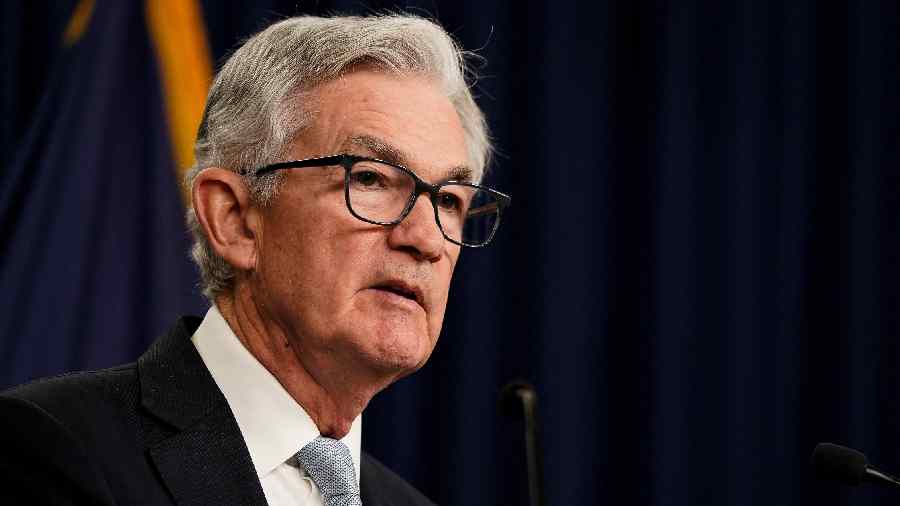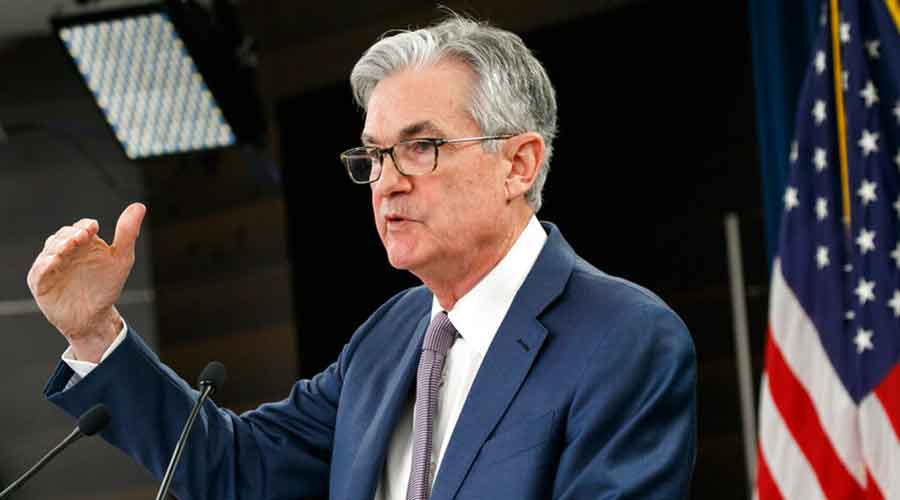US Federal Reserve officials continued their assault on rapid inflation on Wednesday, raising interest rates by three-quarters of a point in their sixth increase this year and suggesting that there were more to come.
At the same time, the policymakers, led by Jerome H. Powell, the Fed chair, said in their policy statement that they were aware of the significant steps they had already taken to cool the economy. They also said that interest rate moves take time to fully work.
Officials have raised borrowing costs from near-zero in March to a range of 3.75 to 4 per cent, and their three-quarter point rate increase on Wednesday was the fourth straight move of that size.
While Powell said during a new conference that “at some point” it would be appropriate to slow the pace of increases, he also suggested that interest rates would peak at a higher level than the 4.6 per cent that the Fed predicted in September.
But since then inflation has remained stubbornly high, and many economists have wondered when and how the Fed would be able to manage such a pullback. The Fed does not want markets to think that its resolve has cracked.
The Fed acknowledged that more rate increases were coming, but also signalled that it was aware that its tightening was adding up.
“The Committee anticipates that ongoing increases in the target range will be appropriate in order to attain a stance of monetary policy that is sufficiently restrictive to return inflation to 2 per cent over time,” the Fed statement said.
The Fed added: “In determining the pace of future increases in the target range, the Committee will take into account the cumulative tightening of monetary policy, the lags with which monetary policy affects economic activity and inflation, and economic and financial developments.”
Stocks rallied immediately after the Fed’s announcement, rebounding from losses earlier in the day, while government bond yields fell. But as Powell began answering questions from reporters, stocks fell sharply after he suggested that interest rates could peak at a level higher than what policymakers previously projected and noted that it would be “very premature” to consider a pause in rate increases. Bond yields became more mixed, with traders seemingly unsure what to make of Powell’s comments.
Powell also made clear that the bigger risk to the economy was in not acting to tame inflation, noting that if the Fed over-corrects, it has the tools to walk that back. The bigger economic risk is “if we don’t get inflation under control because we don’t tighten enough.”
Blerina Uruci, an economist at T. Rowe Price, suggested that falling home sales are “the canary in the coal mine” that demonstrate that the Fed’s rate hikes are weakening a highly interest-rate sensitive sector like housing.
New York Times News Service & AP












